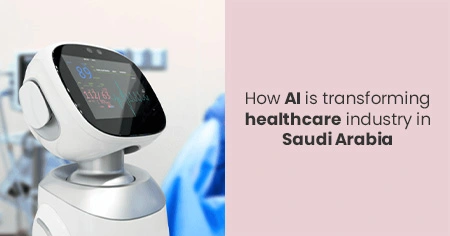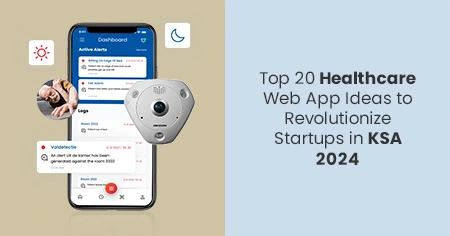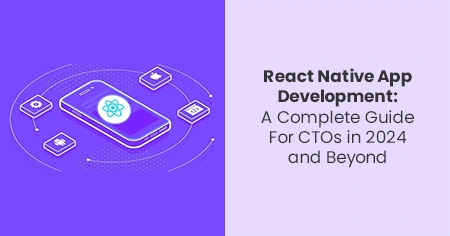As the Kingdom pursues digital transformation, its impact on AI and healthcare grows, changing how healthcare is delivered from diagnosis to treatment.
As the world slowly embraces technology, Saudi Arabia's health sector is transforming significantly, fueled by artificial intelligence (AI) and robotics. This cutting-edge technology is revolutionizing medical care with the promise of increased efficiency, accuracy, and patient outcomes. In this extensive blog, we'll explore how AI is transforming the healthcare industry in Saudi Arabia.
How is AI transforming the healthcare industry in Saudi Arabia?
AI is emerging as a game changer in healthcare, with unimaginable opportunities to streamline processes, improve diagnosis, and tailor treatments. Recognizing the enormous potential of this technology, Saudi Arabia has enthusiastically welcomed AI, creating an environment that fosters development and innovation.
1. Predictive analytics and early detection

One of AI's most important applications is its ability to analyze massive amounts of data and identify patterns that aid in early disease detection and risk assessment. Companies developing apps in Saudi Arabia are developing sophisticated algorithms to analyze medical documents, imaging information, and patient histories to detect the possibility of health issues in the early stages, allowing for timely intervention and better patient outcomes.
2. Drug Discovery and Development
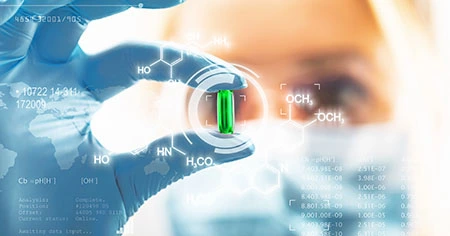
The process of developing new drugs is complex, time-consuming, and resource-intensive. AI could reduce and speed this process by identifying promising drug candidates, predicting their efficacy and potential side effects, and improving clinical trial design.
This technique has already yielded promising results in the search for new treatments for various diseases, including neurological and cancer.
Furthermore, the Saudi government has formed alliances with pharmaceutical companies worldwide to use artificial intelligence to aid drug development. These collaborations aim to accelerate the identification of promising drugs, reduce development costs, and, ultimately, deliver life-saving therapies to patients more quickly.
3. Personalized Medicine and Treatment Plans
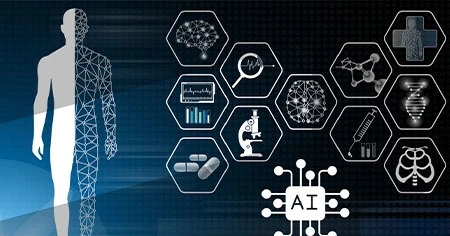
AI's ability to interpret and process complex data sets enables the development of personalized medical methods. AI-powered systems can customize treatment plans for each patient based on their genetic profile, medical history, and environmental conditions, lowering the risk of adverse reactions and increasing treatment effectiveness.
4. Intelligent Diagnostics and Disease Detection

The most intriguing application of AI and machine learning in healthcare is their ability to help doctors make precise diagnoses and detect diseases in their early stages. By analyzing massive amounts of medical information, such as images, patient records, and genetic data, they can identify patterns, anomalies, and other signs that doctors may miss.
In Saudi Arabia, several healthcare institutions are already using AI-powered diagnostic tools to improve patient outcomes. For example, the King Faisal Specialist Hospital and Research Center in Riyadh has implemented an AI system that analyzes mammograms and detects breast cancer more accurately than human radiologists. This speeds up the diagnostic process and reduces the possibility of misdiagnosis, allowing for earlier intervention and potentially saving lives.
5. Remote Patient Monitoring and Telemedicine

The COVID-19 virus has led to the acceptance of telemedicine and remote patient monitoring. These allow healthcare professionals to provide medical care to patients while minimizing physical contact, lowering the risk of illness. AI is a critical component in improving the effectiveness of these healthcare services via virtual technology.
Furthermore, AI-enabled wearables and remote-monitoring systems track vital signs of medication adherence and other health-related parameters for patients recovering at home or in remote areas. AI algorithms process these data, alerting healthcare professionals to potential issues and allowing for timely intervention.
6. Health Data Management and Security

The healthcare industry generates massive amounts of sensitive information, such as medical records, patient records, and genomic data. Controlling and protecting data is critical, so AI and machine learning technologies are important in resolving these issues.
Furthermore, AI and machine learning algorithms can draw useful insights from large data sets, allowing healthcare professionals and policymakers to make educated decisions based on a thorough analysis and predictive models.
7. Predictive Analytics and Risk Stratification
AI and ML algorithms can analyze large amounts of data and identify trends that can be used to predict risk and analytics. These capabilities can benefit healthcare by predicting disease, identifying high-risk patients, and optimizing resource use.
For example, the Saudi Ministry of Health has collaborated with technology companies to develop AI-powered systems that analyze real-time data from various sources, including news media, social media, and health records, to identify early signs of outbreaks. This proactive approach enables healthcare authorities to take preventive measures and better allocate resources, reducing the spread of infectious diseases.
8. Robotic Surgery and Rehabilitation

AI is improving treatment and diagnostic processes and playing an important role in surgical procedures and rehabilitation. Robotic surgery can provide greater precision, fewer errors, and better patient outcomes when AI algorithms assist.
Several Saudi hospitals have adopted the latest robotic surgical systems, including the da Vinci Surgical System, which uses AI-powered software to assist surgeons in complex procedures. These systems provide real-time guidance, allowing surgeons to perform complex procedures with greater accuracy and lower risk of complications. Furthermore, AI transforms the rehabilitation industry by delivering personalized and data-driven therapy programs.
9. Clinical decision-support systems
AI and ML-powered clinical decision support (CDSS) systems are becoming indispensable tools for healthcare professionals, assisting with diagnosing, treating, and managing various medical conditions. These systems can analyze patient information, medical literature, and best practices to provide evidence-based clinical guidelines and help healthcare professionals make informed decisions.
Medical training and continuing education AI is transforming patient care, medical education in healthcare, and continuing medical education.
Furthermore, AI is being used to customize continuing medical education courses for health specialists across Saudi Arabia. AI algorithms can curate customized content by analyzing an individual's learning preferences, areas of expertise, and knowledge gaps.
10. Medical imaging and radiology
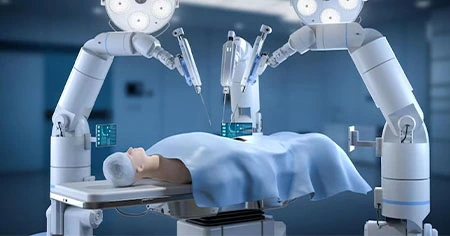
Radiology and medical imaging are two of the most common applications for AI and machine learning in healthcare. The technology can analyze medical images such as X-rays, CT scans, and MRI scans with remarkable precision, detecting anomalies, lesions, and other issues that human radiologists may struggle to detect.
The future of healthcare in Saudi Arabia:
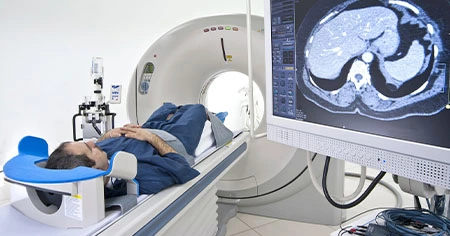
Saudi Arabia's healthcare future is expected to be more transformative, just as the country continues to invest in AI and robotics. App development companies' research and development efforts push the limits of what is feasible and pave the way for innovative solutions that improve efficiency, patient experience, and healthcare costs.
Smart hospitals and connected care: The concept of smart hospitals, in which AI-powered systems seamlessly coordinate various aspects of patient care, is gaining traction rapidly. App development companies in Saudi Arabia are working to create healthcare ecosystems that use IoT (Internet of Things) technologies to enable real-time monitoring, data sharing, and coordinated healthcare delivery.
In drug discovery and development: AI- drug Discovery and Development artificial intelligence (AI) has enormous potential to advance medical research and discover new treatments for complex diseases. Saudi app developers are working with research institutes and pharmaceutical companies to develop AI-powered platforms capable of analyzing massive amounts of data, identifying potential drug targets, and speeding up the development process.
Augmented and virtual reality in healthcare: Incorporating AR (AR) and VR (VR) techniques in healthcare has created new opportunities for medical education, surgical planning, and patient rehabilitation. Companies developing apps in Saudi Arabia are looking into the potential of these immersive technologies to create realistic simulations that allow medical professionals to visualize intricate anatomical structures and provide stimulating therapy experiences for patients.
Conclusion
The impact of AI or robotics on improving healthcare services is undeniable, and Saudi Arabia is at the forefront of this revolutionary shift. By embracing cutting-edge technology, Saudi Arabia is paving the way for a more effective, personalized, and accessible healthcare system. Companies that develop apps in Saudi Arabia play an important role in advancing the development of innovative solutions that are changing the healthcare landscape.




